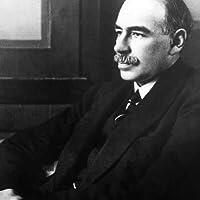
John Maynard Keynes
Over de Auteur
John Maynard Keynes was a prominent British economist whose ideas fundamentally changed the theory and practice of modern macroeconomics. Born in Cambridge, he was educated at Eton and later at King's College, Cambridge. Keynes is best known for his advocacy of government intervention in the economy, particularly during times of economic downturn. His seminal work, 'The General Theory of Employment, Interest, and Money,' published in 1936, challenged classical economics and laid the groundwork for modern economic policy aimed at mitigating the adverse effects of recessions.
Keynes's influence extended beyond economics; he was also a significant figure in the arts and a member of the Bloomsbury Group, which included notable intellectuals and artists. His theories on demand and the importance of aggregate spending helped shape economic policies in the aftermath of the Great Depression and during World War II. His legacy continues to impact economic thought and policy worldwide, as governments often look to Keynesian principles when addressing economic instability.